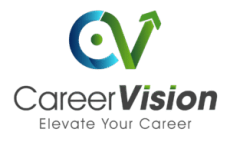Interviews can feel like a high-stakes game of charades where you’re trying to guess what the interviewer really means behind their questions. What do they want? Are they looking for your life story or just a bullet point list of your accomplishments? Understanding the underlying motives behind common interview questions can help you not only prepare more effectively but also respond with more confidence. Let’s break down some of those tricky questions and decode what they’re really after.
The Classic “Tell Me About Yourself”
This question is often a minefield. What they’re really asking is, “Can you summarize your career in a way that showcases your qualifications and personality?” It’s less about your life story and more about your professional narrative. When I was interviewing for a product leadership role, I learned to pivot my response to highlight key achievements that reflected my value to the company. Remember, they want to see your communication skills in action—so keep it concise, relevant, and engaging.
“What Are Your Greatest Strengths?”
Ah, the classic strengths question. While it seems straightforward, interviewers use it to gauge your self-awareness and alignment with the role. They want to know if you can accurately assess your skills and how they apply to their needs. During one of my coaching sessions, a client nailed this by directly linking their strengths to the job description. It’s not just about listing what you’re good at; it’s about demonstrating how those strengths will benefit the team. For more insights, check out this resource on personal branding.
“What’s Your Biggest Weakness?”
This one can feel like a trap. The truth is, interviewers aren’t looking for a confession; they want to see if you can identify areas for improvement and show that you’re proactive about personal growth. A former colleague of mine once turned this question into a triumph by discussing a weakness in time management but then shared how they implemented tools to improve their workflow. That’s the kind of narrative they’re looking for—acknowledgment mixed with action.
“Why Do You Want to Work Here?”
This is not just a question about the company—it’s a test of your research skills and enthusiasm. They want to see if you truly understand their mission and culture. In my experience, the best responses come from candidates who can articulate a connection between their values and the company’s. When I was job hunting, I made it a point to reference specific initiatives or values that resonated with me, which made my enthusiasm genuine. Do your homework and be specific! For strategies on crafting your career narrative, visit this resource.
“Where Do You See Yourself in Five Years?”
This question isn’t just about your career aspirations; it also reveals how you envision your growth and relationship with the company. Interviewers want to know if you have a long-term vision that aligns with their objectives. My journey in product leadership took various turns, but I always emphasized my desire to grow into roles that allowed for innovation and leadership. Align your future with their needs!
Conclusion
Interview questions, when decoded, become less daunting and more like a conversation about how you can contribute to the team. By understanding the motives behind these inquiries, you can prepare responses that not only showcase your skills but also resonate with what they genuinely want to know. Remember, interviews are not just about answering questions—they’re about making connections and showing how you fit into their vision.
Like this kind of straight talk? I post daily tips on job search strategy, career pivots, and interview prep. Follow me on LinkedIn for more insights (and the occasional hot take).

